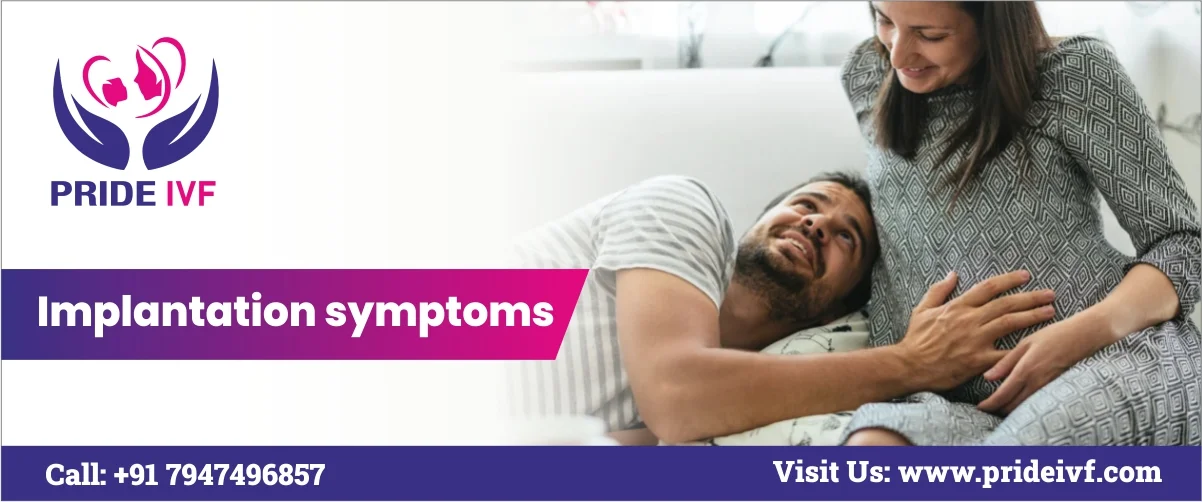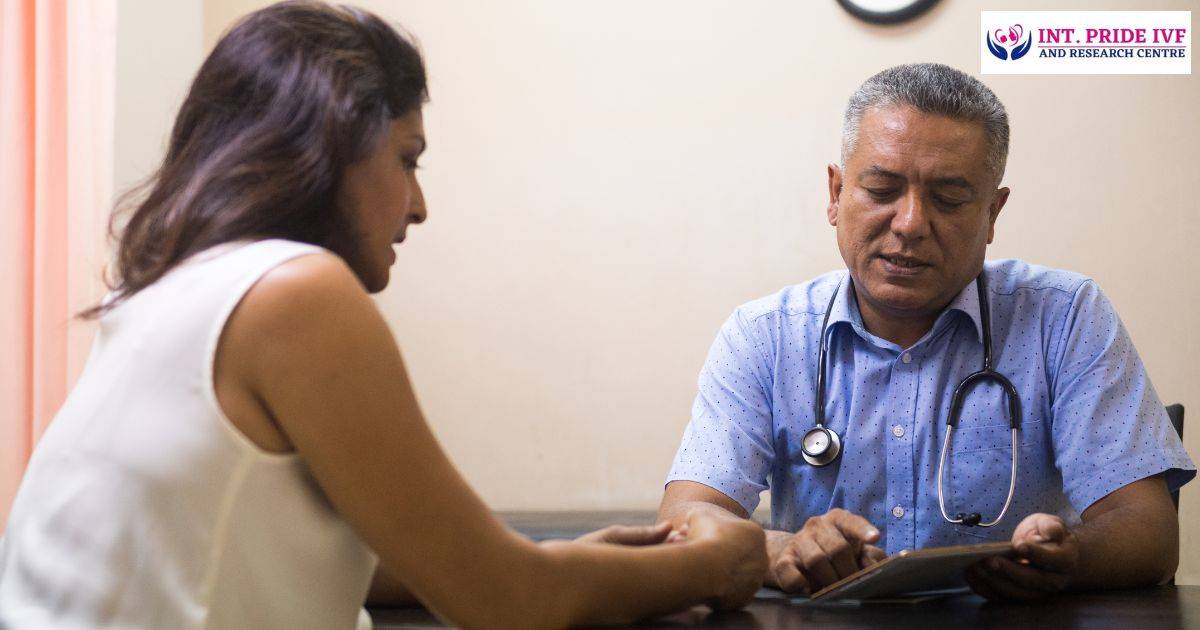Days after embryo transfer can feel like years for any hopeful couple waiting to hear the good news. Constantly looking for the implantation symptoms can cause you immense stress, therefore, understanding the potential symptoms can provide reassurance and put you at ease.
What is an Embryo Transfer?
Embryo transfer is the last step in assisted reproductive technologies (ART) such in vitro fertilisation (IVF). It includes inserting one or more laboratory-created embryos into a woman’s uterus with the hopes of resulting in a healthy pregnancy. Usually, this process carried out three to five days following the fertilisation.




Day of Embryo Transfer
The whole process very simple and often completed within thirty minutes. Usually, no anaesthesia or sedation needed. Your fertility specialist will go over the specifics of the process with you and talk about the amount and quality of embryos created.
The steps of the process given below:
- Embryo Selection: The embryologist gently defrosts the frozen embryo before the transfer. Over 90% of thawed embryos survive the procedure, which is a really good success rate.
- Preparation: The woman’s uterus is ready for the embryo transfer on the day of the FET. To ensure there no unforeseen difficulties and to confirm the ideal lining thickness, a final ultrasound is usually done.
- Embryo Transfer: The actual transfer of the embryo an easy, painless procedure. The doctor inserts the embryo into the woman’s uterus with the use of a tiny catheter. After that, the embryo delicately inserted into the lining of the uterus, where it attaches and hopefully results in healthy pregnancy.
- Post-Transfer Care: After embryo transfer, the patient is encouraged to rest for a while, however, they can resume normal activities the next day. The doctor recommends progesterone supplements to aid in the early phases of pregnancy and implantation process. Also Read: When Does Implantation occurs?
What to Expect After Embryo Transfer?
It is essential to understand the potential signs and symptoms of implantation for expectant patients. Here’s a detailed guide of all that you need to know about implantation symptoms after embryo transfer:
Day 1-3 Initial Days
- Mild Cramps – Some patients might experience mild cramps that feels quite similar to menstrual cramps. This occurs when embryo is starting to settle post transfer.
- Spotting – Mothers may notice some blood spots due to the cathetar used during the transfer. It is not cause to worry about. Also Read: When does implantation bleeding occurs?
- Bloating – Abdominal pain or bloating occurs due to hormonal changes.
Day 4-6 Implantation
- Cramping – Cramps may be severe at this stage.
- Fatigue – Increase in progesterone levels can lead to fatigue and tiredness.
Day 7-10 Hormonal Changes
- Mood Swings: Changes in the hormones can lead to irritability or increased emotional sensitivity. This happens due to the surge in progesterone levels.
- Breast Tenderness: As the body produces, patients will experience breast sensitivity and soreness. Hormonal changes lead to breast tissue, causing them to be more sensitive.
- Nausea: Some patients might experience vomiting which is often referred as morning sickness. It occurs due to hormonal changes taking place in the body and can managed with proper diet and rest.
Day 11-14 Early Pregnancy Symptoms
- Urination: As progesterone levels increase, patients may feel the need to use the restroom often. This is the earliest sign that embryo transfer has been successful.
- Body Temperature: Patients are advised to track their basal body temperature (BBT) as a part of their fertility monitoring because the temperature increases when implantation is successful. This surge in the temperature is a sign of early pregnancy and a reason to celebrate for those who are trying to conceive. Tracking the subtle changes in basal body temperature provides useful insights into the mother’s reproductive health.
- Positive Test: This test is also known as a “Beta test.” It taken after fourteen days to ensure that the implantation succesful. It is quite tempting to take this test as the IVF therapy consists of stress, worry and hopes but it advised that the patients wait for atleast two weeks to ensure reliable results as the body goes through many hormonal changes after embryo transfer. Make an appointment with the best IVF doctor in Delhi to see the best outcomes.
- Changes in Appetite: Patients experience cravings or even aversions to particular foods. These changes caused due to hormones so if you starting to dislike certain foods that you enjoyed earlier, you might be expecting!
Also Read: Positive Signs After Embryo Transfer, Negative Signs After Embryo Transfer
What To Do After Embryo Transfer?
The patients advised to take ceratin precautions after embryo transfer to ensure the best outcome. Here’s a list of few things you should follow:
- Unplug, Unwind and Rest: It is essential to rest for atleast 24 hours after the transfer as it allows the patient’s body to recover and gives embryo a chance to implant successfully. Therefore, Put all tasks on hold and catch some beauty sleep or read that Jane Austen book!
- Say No to strenuous activities: It is advised to avoid heavy lifting or indulging in stressful activities during the first fourteen days as it might affect the implantation process. Tread lightly for full two weeks!
- Drink plenty of water: Staying hydrated is good for health in general and very useful during first two weeks as it keeps the uterine lining in good condition and facilitates the implantation process.
- Follow your doctor’s instructions: It is best to follow your doctor’s advise. From taking progesterone or oestrogen supplements to tracking the changes, it is crucial to follow the instructions to support the embryo transfer.




Looking for the Best IVF Centre in Delhi?
When looking for the best care available, hopeful couples look for success rates, medical facilities, patient’s evaluations, expertise of the medical team and faith! Therefore, Pride IVF offers top-notch infertility treatments with exceptional success rates. Dr. Nidhi Sharma, renowned for dealing with complex fertility cases with love and ease, dedicated to making the fertility process patient-friendly with less visits and by reducing treatment duration.
As one of the best IVF fertility clinic in Delhi, PRIDE IVF utilises the latest and most advanced techniques in medical science. We offer the most affordable medical services without compromising on your trust. Our team comprises the best fertility specialists in Delhi, offering medical treatments such as IVF, IUI, and more.
It’s your turn to join the countless happy families who have embraced their surreal dream of parenthood with Pride IVF.
Start your beautiful journey to parenthood at PRIDE IVF!
FAQs
Q: How soon after the transfer of embryo do you experience symptoms?
A: The symptoms may appear within 4-6 days post embryo transfer but it is important to know that not all women undergo ther same experience. Some might not experience any symptoms until later.
Q: Are the signs of implantation and periods similar?
A: Yes, the signs of implantation and menstruation are similar. However, when implantation occurs, the bleeding is usually lighter and shorter in duration.
Q: How can I confirm that Implantation has occurred?
A: The best way to ensure that implantation has occurred after embryo transfer is to take the pregnancy test which measures the presence of hCG in the urine or the blood.
Q: Can I have implantation without any symptoms?
A: Every woman’s body reacts differently so it is quite possible to observe no changes despite successful implantation.




